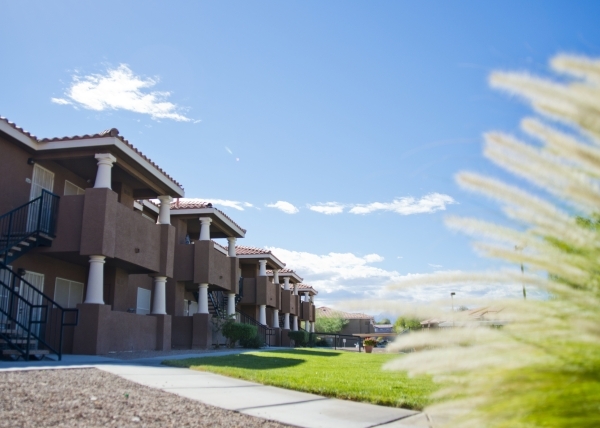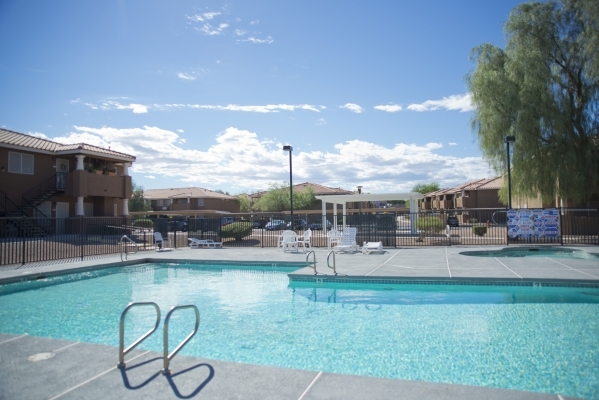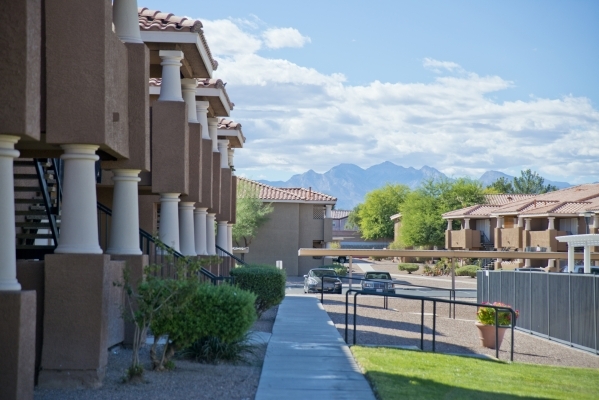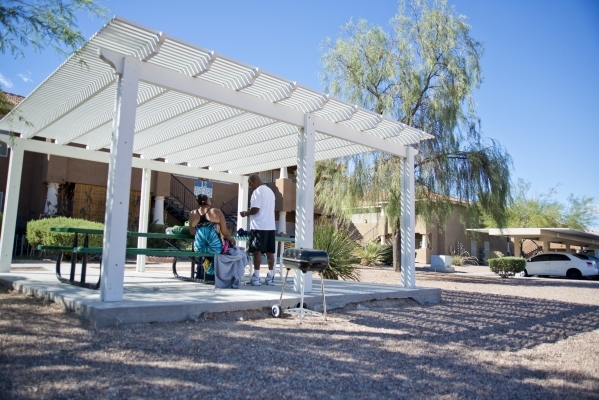Company using crowdfunding to buy Las Vegas housing complex
In a sign the Las Vegas apartment market is improving, a California company is under contract to purchase a senior housing complex utilizing funding from online investors.
OpenPath Investments announced it plans to close Nov. 23 on acquiring Lake Tonopah Apartments, a 356-unit complex at 2150 Citrus Hills Ave. The deal is valued at $16.8 million, and OpenPath announced it plans to make $1.1 million in improvements to the property.
OpenPath Managing Director Peter Slaugh said the company is raising $6 million for the project and borrowing the remainder. It utilized its core of investors for about $4 million and is seeking almost $2 million through its new online investment platform referred to as crowdfunding. So far, Slaugh said OpenPath, which is based in San Rafael, has raised $1 million from that source and has just under $1 million to go.
This marks the second time the 10-year-old company, which has 13 multi-family properties in Western states, including Oregon, Utah, Texas, Colorado and Arizona, has turned to crowdfunding. Slaugh said it used the concept for the first time in May for an apartment complex in Colorado Springs.
"We have a small stable of investors we've worked with over the years, and crowdfunding helps us get the word out to like-minded investors across the country who love what we're doing and our approach to business," Slaugh said. "The whole model opens your reach to investors who've never heard of you. It makes the whole capital-raising process more efficient because people are going online for opportunities rather than picking up the (Wall Street) Journal."
Slaugh said the group has a couple of investors from Las Vegas participating in the project who he did not name and added that there are no concerns that they will reach their fundraising goal. The deal will go through, he said.
Although the concept of soliciting investors online through a crowdsourcing platform is new, the concept of looking for investors on commercial and residential projects isn't, said John Restrepo, principal of RCG Economics, who tracks the apartment market. He said the format has simply changed because everyone is online and even auctions are done online today.
"We used to see a lot of this back in the day before the recession in the Wall Street Journal and other national publications during the boom," Restrepo said. "You haven't seen much of that since the Great Recession, especially here in Las Vegas.
Restrepo said the process of seeking out investors for such projects is a good sign that the Las Vegas commercial real estate market continues to recover. While industrial is the strongest segment of the marketplace, multi-family continues to do well with acquisitions ongoing during the last couple of years.
The vacancy rate has run between 8 percent and 9 percent, which Restrepo said is fairly strong despite competition from rentals of single-family housing. Senior housing has a lower vacancy rate because of the demand given the aging population, he said.
Despite its name, the investment platform, however, isn't open to everyone. It's geared for accredited investors with more than $200,000 in annual income or a net worth in excess of $1 million, excluding their primary residence, Slaugh said.
OpenPath estimates that the new Lake Tonopah Apartments investment will garner investors a 19 percent internal rate of return. The property has a 92 percent occupancy rate.
Slaugh said the company plans to make the property more attractive and further boost occupancy through its improvements, style of management and by operating more efficiently.
The rents for the property, which is limited to those 55 and older, have restrictions based on affordability because the property was developed using federal tax credits, Slaugh said.
The average rents are $550 with one bedrooms going for $450 and three bedrooms going for $750 for three-bedroom units.
Slaugh said there's no plans to raise rents immediately but it could happen over the last three years. There's room based on affordability standards to raise rents by $80 to $90 per month, he said. There are residents who qualify for Section 8 housing, which will help bridge the gap for their rents, Slaugh said.
Slaugh said the company has a track record of creating value based on its strategy he dubs the "urban village" concept that promotes creating a community from within and environmental stewardship.
That started during the Great Recession in 2008 and 2009 when people were suffering more and jobs were scarce. OpenPath attempted to socially connect residents to improve the quality of life, he said.
The residents did barbecues, book clubs, community gardens, workout groups, job networking groups, and other endeavors to bring people together, Slaugh said. The complexes even educated people on greener practices of energy and water use, he said.
"What came out of it financially at a time you couldn't raise rents because jobs were scarce is that residential referrals were up and residents liked where they were living," Slaugh said. "They brought in friends. Turnover and marketing costs were down. We had our own version of taking care of residents and that translated to the bottom line from trimming expenses at the property level."
Slaugh said once OpenPath acquires one property in a market, it tends to acquire another to improve efficiency. It plans to hold the property for five to 10 years. The rent restrictions on the property expire in 2027, he said.


























